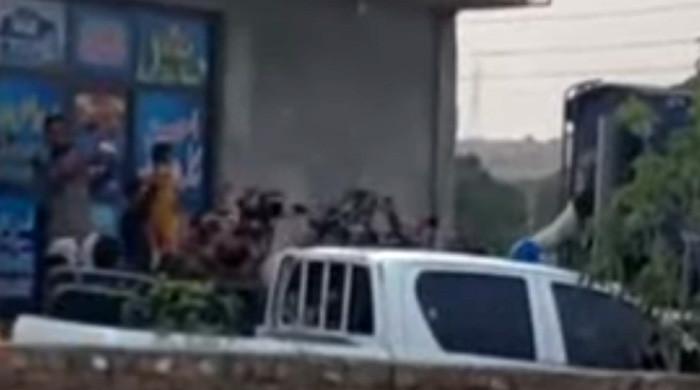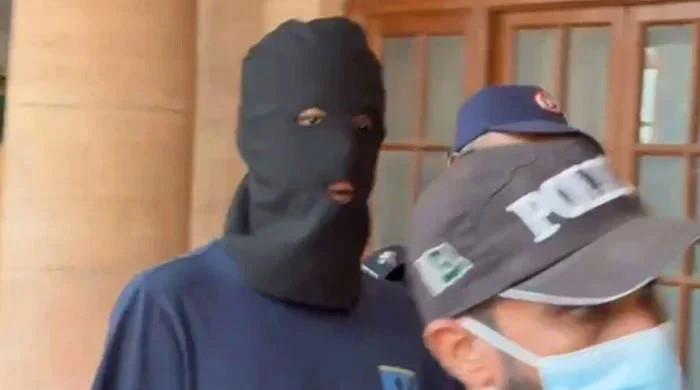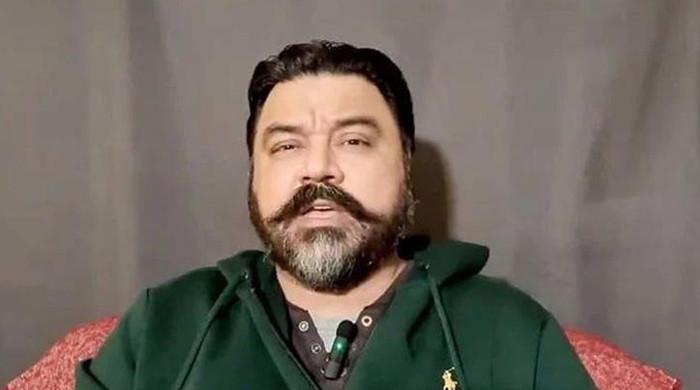MQM manipulated and abandoned me, Imran Farooq's widow tells UK police
'MQM leadership in London manipulated me for their own political advantage, were never serious in helping me," says Shumaila Imran, widow of slain MQM leader and founder Dr Imran Farooq
October 09, 2019
LONDON: The widow of the Muttahida Qaumi Movement's (MQM) former leader and founder has told Scotland Yard that she felt the MQM leadership manipulated her for their own political advantage and were never serious in helping her after the murder of her husband nine years ago.
This correspondent has seen a copy of the statement that Shumaila Imran Farooq gave to UK police officers on the ninth murder anniversary of her husband. Geo News has also seen her statement to the police, which has been given to Pakistani authorities by the UK government for the prosecution trial in Pakistan of Dr Imran Farooq's murder suspects—Mohsin Ali Syed, Khalid Shamim and Moazzam Ali Khan.
Shumaila Imran Farooq told the police that she received "some support from the MQM" initially, "but I pulled myself away from them when it became apparent that they had no interest in really helping me".
She said the MQM leadership in London used her for publicity reasons and appeared with her at "certain times of the year, for example on the death anniversary of my husband".
She told the police in her damning statement: "I felt the MQM were manipulating me and therefore I deliberately withdrew. We have all felt vulnerable and abandoned after my cancer diagnosis and they didn't help me at all."
'Scared and unsafe'
Dr Imran Farooq's widow told the UK police that she fears having the same fate as her husband. "It makes me feel scared and unsafe."
The notes, seen by this correspondent, show that police officers told Shumaila they had no specific intelligence suggesting that her life was at risk. However, the police has installed a security system at her home in case of an emergency.
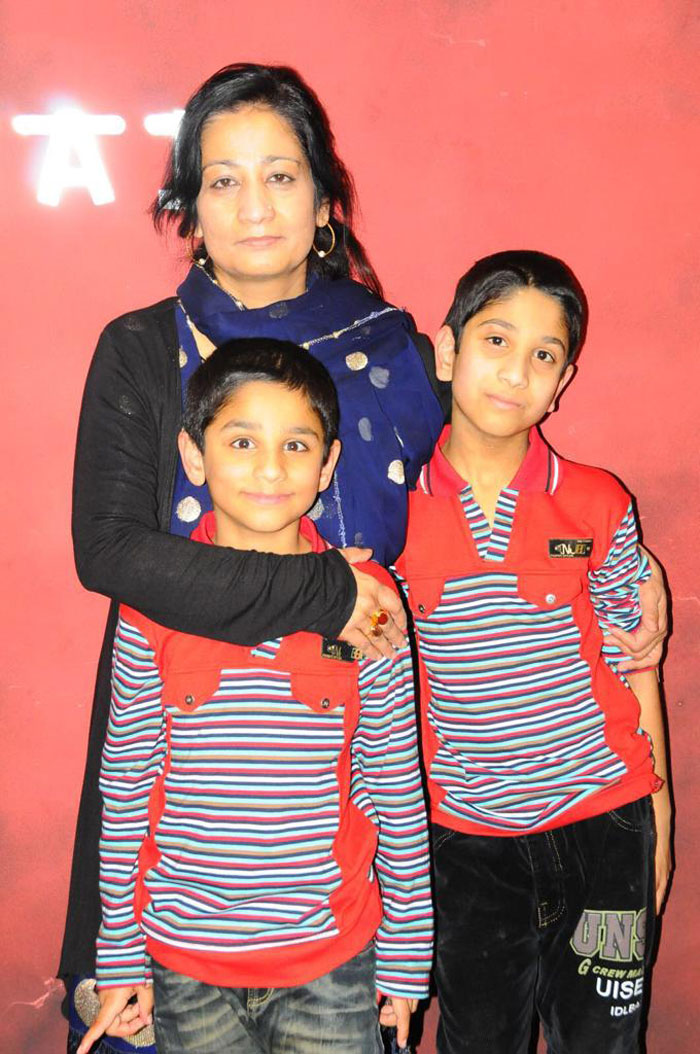
Shumaila's detailed statement to the police on the murder of her husband, what happened to her, and the problems she has faced are all part of a tragic story of sadness, political cruelty, and insensitivity.
Shumaila told police she was waiting for her husband on the evening of September 16, 2010. The former MQM leader always arrived home on time and spoke to her before leaving the shop. But when he didn’t that day, Shumaila says she got anxious and lifted the curtain of her first floor flat on Green Lane to see if he was outside.
"When I lifted the curtain, there was police everywhere. I didn’t know what was happening. I rang Imran on his mobile but he didn’t answer. After a few minutes, I thought I would look outside. The police had blocked the road. As soon as I opened the door, the police came inside. The police officers said don’t go downstairs. They told me Imran was injured. I became worried and started screaming. I couldn’t understand what to do. I rang Iftikhar Quraishi from my home telephone. I said to him someone has injured Imran. I am alone here; please send someone to help me. I rang Imran’s brother in Pakistan. The police stayed for a while with me. They said I and my two children had to leave home."
She next saw her husband's dead body at the mortuary.
"The most profound impact of my husband's murder is all consuming sadness even now after all this time. I am never fully happy on the inside. The last time I remember being happy was when my husband was alive. Financially I am struggling. I live on state benefits, namely Employment and Support Allowance (ESA), housing and child benefits. My flat is a private rental. I would like to live in a better and more appropriate house that I am unable to afford. Without the benefits, I would be ruined. I have never received any sort of financial compensation for my loss. My sons live in desperate fear, primarily of losing me also. The only extended family my boys know is my family in Pakistan. Whenever we travel to Pakistan, I am slightly happier because it's nice to see my children playing with their cousins."
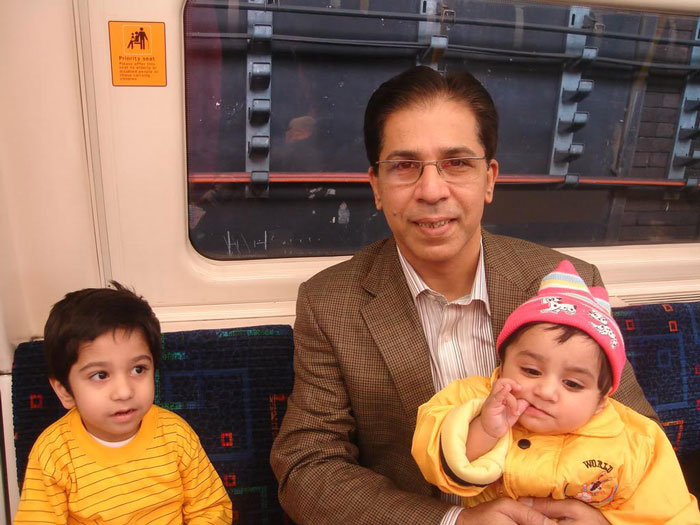
Cancer diagnosis
Shumaila Imran Farooq reveals in her statement that she has been a cancer patient for over three years now. "A few years ago, I was diagnosed with cancer and had to have a medical surgery to my face and neck. This has led me to being facially disfigured and that restricts how I speak, eat, and drink. This has added to my stress. My sons have been profoundly affected at the loss of their father. They miss him but are hardly old enough to know him. They only know what I have told them. They recognise that they are different because they don’t have a father. This is becoming more profound as they get older. The boys and I live in a one bedroom flat.
"When I was sick with cancer a couple of years ago, my mum and sister came to the UK to take care of me because I had no one here. The one friend I had severed ties with me because her son witnessed the attack on my husband and, understandably, it disturbed her greatly."
Shumaila said the police officers showed her pictures of two murder suspects – Mohsin Ali Syed and Kashif Khan Kamran – and asked whether she knew any of them.
"The police showed me two pictures. I had already seen these pictures in the media, including on Geo News. When I saw two pictures, it clicked immediately that I had seen one of them before. I saw this man two-three months before my husband's death. It was a hot day and it was June or July 2010 when I saw this man. I saw him with my husband and two sons on that day walking back from the park. I remember carrying our younger son in Green Lane that goes to our house. The man had walked from opposite side of the house. That man shook my husband's hand and said salaam. My husband asked him how he had come into the area. He said he was here to study, was from Karachi. He was standing less than a minute away from me. It was a clear day and I could see him clearly. He looked like he was from Karachi. He had distinctive white face. He said he lives locally."




